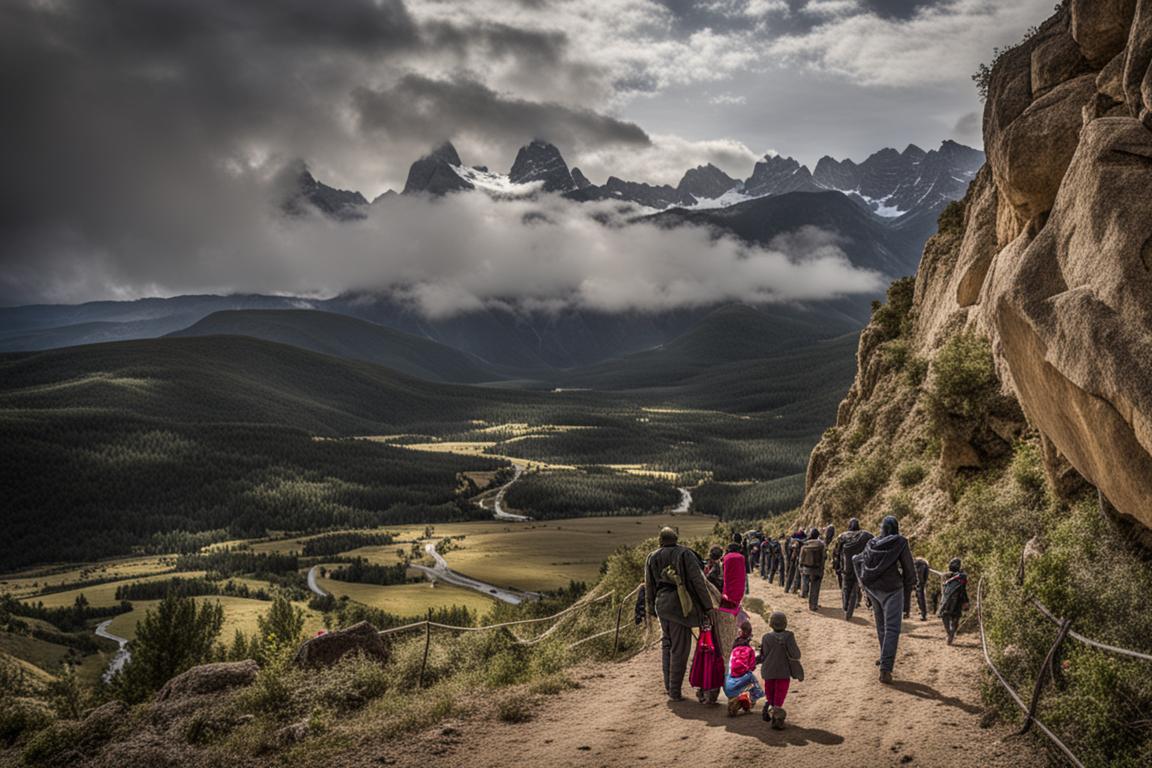
In a bold and unprecedented move, the world’s governments came together to abolish money. The transition to a moneyless society was driven by the vision of a world free from economic inequality, where resources and opportunities were shared equitably among all people. This radical shift required the development of a new system for distributing goods and services, one that prioritized human needs and communal well-being over profit and individual wealth.
The transition began with the establishment of a global resource management system. A network of decentralized councils, composed of representatives from various communities, industries, and scientific fields, was created to oversee the fair allocation of resources. Advanced technology, including artificial intelligence and blockchain, played a crucial role in ensuring transparency and efficiency in this new system. These technologies helped track the production, distribution, and consumption of goods, preventing hoarding and ensuring that resources reached those who needed them most.

Work and production were redefined in this moneyless society. People contributed to their communities based on their skills, passions, and abilities, rather than for financial gain. The concept of “work” expanded to include not only traditional jobs but also caregiving, volunteering, artistic pursuits, and other activities that enhanced community well-being. With basic needs guaranteed, individuals were free to pursue their interests and develop their talents, leading to a more fulfilled and balanced society.
Education and training became central to the new system. Comprehensive and accessible educational programs were implemented to ensure that everyone had the opportunity to learn and grow. Lifelong learning was encouraged, with people regularly updating their skills and knowledge to contribute effectively to their communities. This focus on education led to rapid advancements in science, technology, and the arts, as people were motivated by curiosity and the desire to improve their world.
Healthcare was transformed by the abolition of money. Universal access to medical services became a fundamental right, with a focus on preventive care and holistic well-being. Medical professionals worked collaboratively, sharing knowledge and resources to provide the best possible care for everyone. Research and development in the medical field accelerated, leading to breakthroughs in treatments and cures for diseases that had once been considered incurable.
Housing, food, and other essential services were provided based on need rather than financial ability. Community centers and distribution hubs were established to ensure that everyone had access to nutritious food, clean water, and safe housing. These centers also served as social hubs, fostering a sense of community and shared responsibility. Urban and rural planning focused on sustainability and environmental harmony, with green spaces, renewable energy, and efficient public transportation becoming standard features.
Without the pressures and stresses associated with financial survival, mental health improved significantly. People experienced less anxiety and depression, as the fear of poverty and economic insecurity was eliminated. Communities became more supportive and cohesive, with individuals working together to address social issues and support each other in times of need.
Art, culture, and creativity flourished in this new world. Without the need to monetize their work, artists and creators were free to experiment and innovate. Cultural exchange and collaboration thrived, leading to a vibrant global arts scene that celebrated diversity and human expression. Festivals, exhibitions, and performances became common, providing joy and inspiration to communities.
Governance in a moneyless society required a new approach. Direct democracy and participatory decision-making became the norm, with local councils and assemblies playing a key role in managing community affairs. People had a direct say in the issues that affected their lives, leading to more responsive and accountable governance. Technology facilitated these processes, allowing for widespread participation and transparent decision-making.
While the transition to a moneyless society brought many benefits, it also faced challenges. Ensuring fair and efficient distribution of resources required constant vigilance and adaptation. Conflicts and disagreements still arose, necessitating robust conflict resolution mechanisms and a strong emphasis on empathy and cooperation. Additionally, the global community had to work together to address environmental challenges and ensure that the planet’s resources were used sustainably.

By the mid-21st century, the world had adapted to life without money. The initial fears and uncertainties gave way to a sense of possibility and collective purpose. Humanity had embraced a new way of living, one that prioritized well-being, equity, and sustainability. The abolition of money had not only transformed economic and social structures but had also fostered a deeper sense of connection and shared responsibility among all people.
In this new world, the dream of a just and harmonious society had taken a significant step towards becoming a reality. The focus on human needs, communal well-being, and environmental stewardship created a foundation for a future where everyone had the opportunity to thrive and contribute to the common good. The abolition of money had opened the door to a new era of human potential, creativity, and cooperation, paving the way for a brighter and more equitable future for all.




